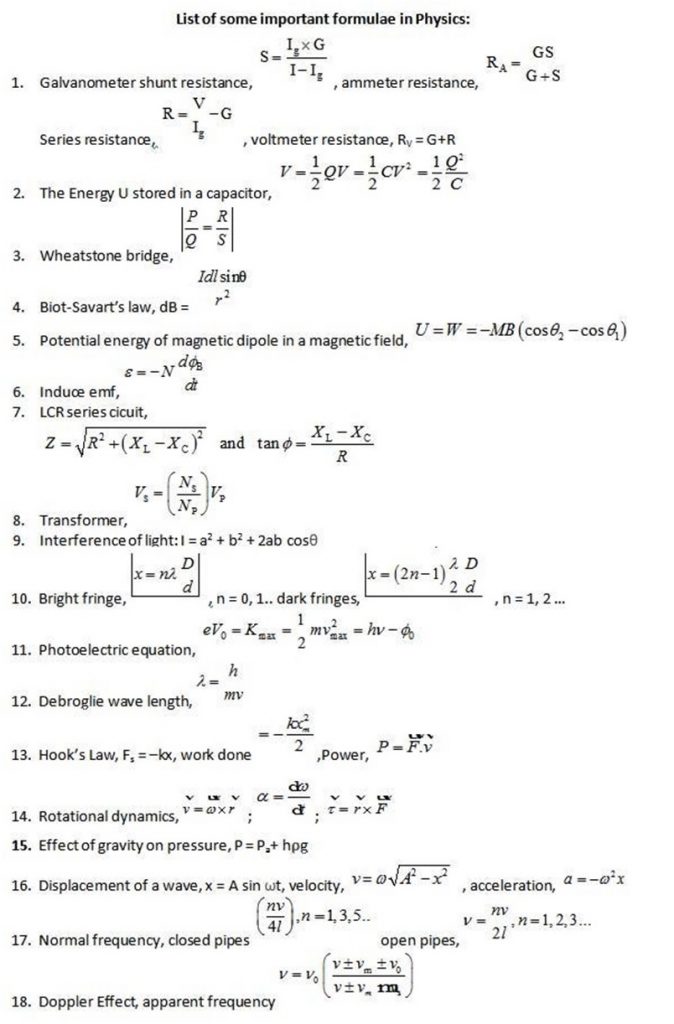NEET exam preparation starts with knowing its well as prescribed by the Medical Council of India (MCI). We know that the NEET question paper is 3-hours long during which you have to solve 180 objective-type questions – 45 each on Physics, Chemistry, Botany and Zoology. Naturally, the questions asked in the exam do not cover all the topics mentioned in the syllabus or more questions are asked from certain topics years after year. Most NEET coaching providers analyze the previous years’ question papers to find out which of the topics carry most weightage in the NEET or AIPMT question papers and emphasize on them first.
If you are preparing for the NEET 2019 exam on your own, you might want to study these chapters first:
Biology
When you are preparing to be a doctor one day, Biology is naturally the most important of the three sections for you. All the chapters of Class XI and Class XII of this subject are important. You need to have in-depth knowledge of all its chapters – with more emphasis on Biology of Class XI. Best books for NEET are of course the NCERT books. So, go through them thoroughly.

Online NEET coaching expert Dr. Bela Arora says, “The analysis of previous years’ NEET and AIPMT question papers show that ‘Structural Organisation in Plants and Animals’ covered in Class XI and ‘Biology for Human Welfare’ and ‘Ecology’ covered in Class XII threw up maximum number of questions. Similarly, all the concepts related to Human Biology are quite important too.” Biological classification and reproduction in plants and animals are other topics you should pay close attention to.
All MBBS and BDS aspirants are advised to learn the structural and morphological features of plants and animals by heart too. Also, learn the essential ratios of genotypes and phenotypes in Genetics as shown in the table below:
| Cross | Phenotypic Ratio | Genotypic Ratio |
| Monohybrid Cross | 3:1 | 1:2:1 |
| Dihybrid Cross | 9:3:3:1 | 4:2:2:2:2:1:1:1:1 |
| Incomplete Dominance | 1:2:1 | 1:2:1 |
| Complementary genes | 9:7 | Same as dihybrid cross |
| Supplementary genes | 9:4:3 | Same as dihybrid cross |
| Dominant Epistasis | 12:3:1 | Same as dihybrid cross |
| Recessive Epistasis | 9:3:4 | Same as dihybrid cross |
Physics
Physics requires logical understand of concepts you study. The basics you study in Class XI and Class XII go a long way in understand the physiology of our organs. For example, you need to understand the pressure-volume ratio to really pick up how our cardiology system works or how blood circulation system works in our body. Hence, don’t study Physics just as a part of your NEET exam preparation but to understand the fundamentals that will come in handy to you when you make a career in the medical field.

Sumit Mazumdar, who has been providing NEET coaching to medical aspirants and JEE coaching to engineering aspirants for the last eight years, says, “While all the Physics chapters of Class XI and Class XII are important, I have noticed that many questions have been asked from ‘Kinematics’ and ‘Laws of Motion’ which are covered in Class XI, and from ‘Optics’ and ‘Electronics’ which are usually taught to Class XII students.”
Gravitational Field, Circular & Rotational Motion, Magnetic Field, and Electric Field and Current Electricity are some of the topics should be prioritized too.
Some of the Physics formulae you should know by heart are as follows:

Chemistry
Chemistry fundamentals form the base to help us decode chemical reactions that happen inside our body all the time. They help us to understand how enzymes and hormones in our body work. Thus, all those who want to crack NEET should pay attention to all the chapters covered in Class XI and XII.

Still, you should pay more attention to p-block elements, d and f-block elements, and coordination compounds in Inorganic Chemistry; IUPAC nomenclature, and oxygen & nitrogen containing compounds in Organic Chemistry; and Chemical Kinetics, Solutions, States of Matter (especially gaseous state), Electrochemistry and Equilibrium in Physical Chemistry. Thermodynamics and Chemical Equilibrium are other topics you should pay close attention to.
Chemistry expert A R Reddy says, “When it comes to NEET exam, about 20 questions out of 45 questions asked in the subject are from Organic Chemistry. So, you should prepare all its topics well. The good news is that if you have prepared for this section well, you will find that its questions are on the easier side.”
If you are short on time, studying just the chapters mentioned above can help you solve at least 100 questions correctly and fetch at least 400 marks in the NEET exam.
The key to crack NEET 2019 is to keep doing revisions on a regular basis, solve all the exercises given in NCERT books, and practice, practice, practice to build up your speed and accuracy. It may also help you to create a topic checklist and mark your competence level next to it after each full-length NEET mock test or sample paper you solve.













